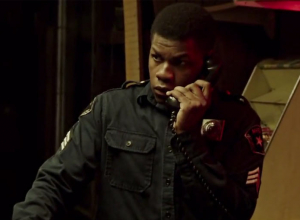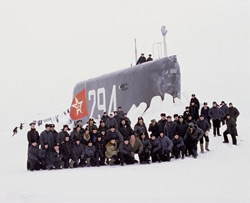Does Zero Dark Thirty Tell Us Something We Don't Want To Hear About Torture?
By Jack de Aguilar in Movies / TV / Theatre on 14 December 2012
Kathryn Bigelow's latest offering, Zero Dark Thirty, has scored well with the critics, and is likely to prove a success as we move in to awards season, but does the film's depiction of torture represent an uncomfortable truth?
That uncomfortable truth is that America uses torture as a means to complete a mission, to safeguard its people. That's what Zero suggests, anyway, and it's started a much-needed debate as the subject jumps from government documents into the living rooms of Americans.
At the films crux is the search for Osama Bin Laden - an American obsession for the past decade. Before a midnight raid on the Al Qaeda leader's compound in Abbottabad, Pakistan - we won't apologise for spoilers, you big news-avoider - a man is tortured so that he may give up a name, which the CIA need. The techniques include locking him in a small box, beating him severely and pouring water over his face through a cloth, commonly known as waterboarding.
And the debate forms. It is pertinent, now, to mention that torture is illegal everywhere. There is not a state in the world that has an official, legislative legalised version of torture, but many justifications, loopholes and sheer ignorance (of the bliss kind) are employed so it may be used to procure important information.
Bravo to Bigelow and Zero Dark Thirty for taking a topic often talked about by world-conscious who have very little influence, and plunging it into the mainstream, so that very real and important questions may be asked of those who partake in the stripping of a human being's human and civil rights for the safety, political or fiscal interests of another.
Zero Dark Thirty is scheduled to arrive in UK cinemas on January 25, 2013. The film gets a limited release in the US on December 29, before opening across America on January 11. Here's the latest trailer.
Contactmusic
Movies and Trailers

Detroit Movie Review
After The Hurt Locker and Zero Dark Thirty, Kathryn Bigelow and Mark Boal reteam to...

Detroit Trailer
It's the summer of 1967 and the city of Detroit, Michigan is in the midst...

Zero Dark Thirty Movie Review
Blistering writing, directing and acting hold us firmly in our seats as this procedural drama...

Zero Dark Thirty Trailer
Following the tragic events of the twin towers bombing on September 11th 2001 in New...

K-19: The Widowmaker Movie Review
K-19: The Widowmaker is based on a true story about a Russian submarine sent to...








